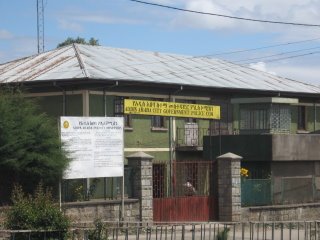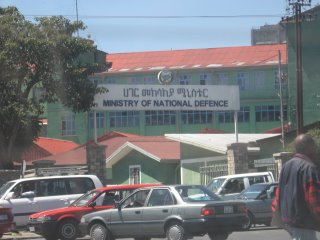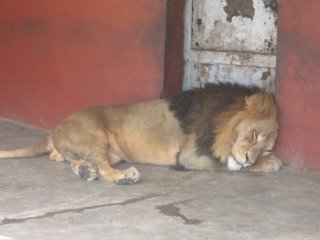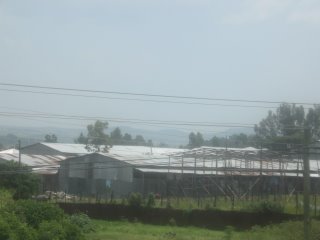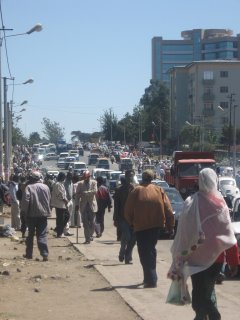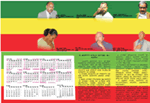
It seems that Ethiopia is again the lucky recipient of American aid--this time to the tune of $37 million USD (or 321,900,000 million birr). This donation, coupled with the recent announcement of an additional US donation of $250 million (to fight HIV/AIDS) however, also unfortunately amounts to increased endorsement of one of the world’s most brutal dictatorships.
True to form, US Ambassador Vickie Huddleston was on the scene to represent the generosity of USAID, proudly proclaiming that “the United States Government remains committed to working in collaboration with other donors and the Government of Ethiopia to support programs that address the needs of the Ethiopian people”… Needs, that apparently (despite USAID reports “that improved governance…is essential to enable economic growth and address the challenge of famine vulnerability, hunger, and poverty in Ethiopia”) overlook the most vital neccessity of democratic rule --through free and fair elections and the release of all political prisoners, government transparency, and national policy reform.
Unfortunately the task of addressing the negative government policies and practices largely responsible for this perpetual state of humanitarian crisis, has also proven too much for even the partnering UN World Food Program to attempt. Though the WFP in Ethiopia continues to appeal for increased assistance, the driving forces behind the overwhelming national need remain skillfully and publicly avoided.
Private conversation with an in-country WFP official some months ago, however, has proven far more insightful:
“Off the record”, this worker spoke at great length about the severely detrimental effects of the current land tenure system, and about the incomprehensible absence of the basic agricultural technologies required to achieve both domestic food security and increased export potential (given the international applause received by both the ADLI and SDPRP policies of Meles Zenawi). This person expressed absolute disgust at the widespread federal corruption regularly witnessed within the aid community here--in the form of official embezzlement, deliberately incorrect damage assessment/regional reports (either exaggerated to attract surplus aid or under-reported to feign government competency), inadequate leadership capacity, regional channeling of “aid dollars”, and the abuse of vital argricultural supplies as a means of “vote harvesting” and political manipulation. Then…sadly, this generally-likeable official hesitated, swallowed hard, and apologetically described the ‘delicacies’ faced by such a large, essential humanitarian agency--the pre-requisite of “government cooperation in order to gain permission to provide emergency aid”, and thus the regrettable “impossibility” of denouncing such deeds to the international donor community.
I recently overheard another WFP field worker adamantly ‘officially’ reject the suggestion of economic sanctions in reponse to the mounting political oppression, only later to insist over dinner with friends that economic sanctions would, in fact, be the best way to necessarily oust the repressive EPRDF regime! I additionally witnessed this same person--whom I know to be personally “horrified by the current oppressive political climate and severe escalation of national human rights violations”--professionally offer only a feeble, “No comment” on the subject when approached by a member of the international press.
Of course, we know all too well that a government as deeply entrenched as the EPRDF cannot be overthrown in a day and that the humanitarian concerns in the interim must be addressed, but that does NOT, in my mind, excuse the resounding silence of the international donor community in recent years.
1.If it is common knowledge that the current Ethiopian government consistently ranks among the world’s worst in terms of corruption (placing in the bottom 10th percentile, according to World Bank governance indicators)
and
2.If the majority of foreign aid dollars do (as generally accepted within the national aid community), amount to little more than direct financial support for a brutal dictator and his henchmen—essentially facilitating the continued harassment, torture, imprisonment and murder of innocent civilians throughout this country
How can such a gap possibly remain between “personal” and “professional”
opinion?
It remains to be seen how members of the international community can continue to justify the ‘luxury’ of simultaneous opposing stances when millions of lives are literally at stake! For who, if not they, are in the position to accurately relay the information to the donor community that will in turn effect serious intervention, government accountability and reform?

